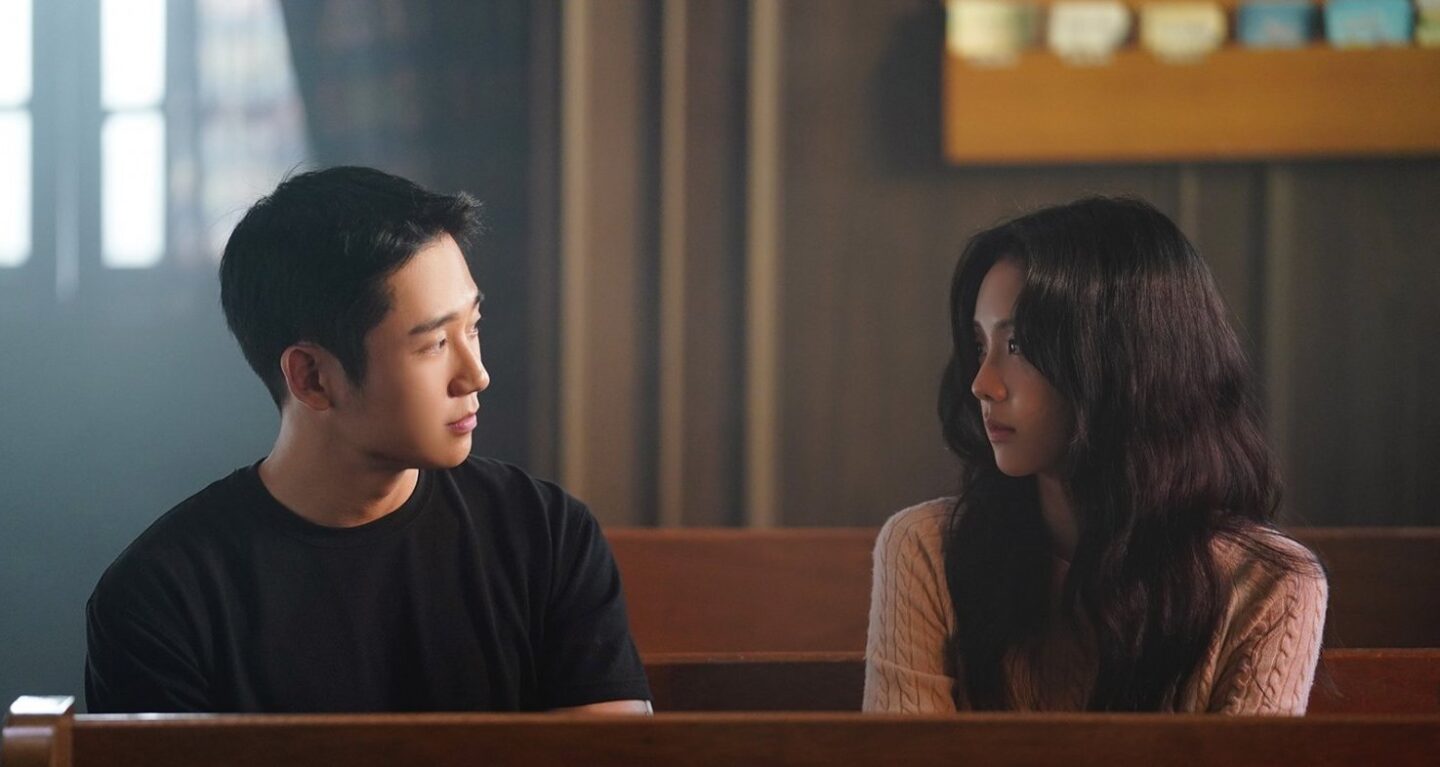
When Snowdrop first aired, it impressively pulled out all the stops in its big-budget production. It was massive in scale and ambition, and seemed primed to become a K-drama classic of epic proportions. Amidst the uproar it caused with its shaky historical accuracy, it dared to stand its ground on dazzling visuals and heavy, serious acting. And for a while, it worked. The bombast was almost enough to distract from its bare foundations.
Then, as noted in the mid-series review, the drama’s structure started to slowly but surely gave way. An increase in filler stories and protracted sequences made it infuriating to watch. Plot twists were recycled and thus rendered null. The use of multiple genres resulted in an inconsistent and sometimes inappropriate tone as the drama asked us to laugh at violence at some times and swoon at kidnapping at others. These issues are all still very much present in Snowdrop’s second half, unfortunately crippling an already unstable premise.
The main thing the drama had going for it was its earnest desire to highlight the hypocrisy of politics and the resilience of mankind. But with that too, it fumbles by the end. And what a ridiculous end it was! For Snowdrop to go through all that drama, all those needless twists and turns, just to end up with nothing of actual importance to say is simply frustrating. With the airing of its disappointing finale, the drama proves that it was never interested in the issues it raised nor in the characters it introduced. Ultimately, Snowdrop is a mere spectacle that has nothing to show for its excess.
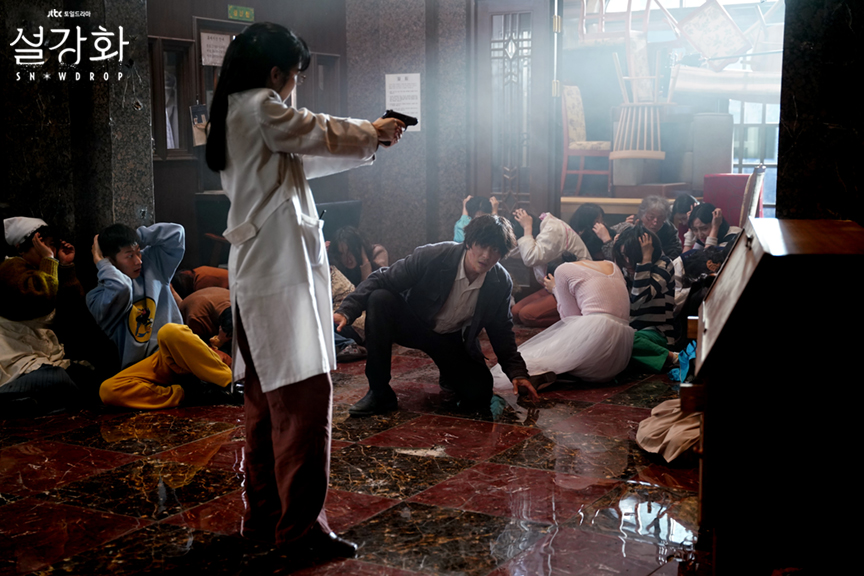
Much has already been said about the confusing decision to make Snowdrop about a hostage crisis in the previous review. It was (perhaps naively) hoped that the second half would get out of this rut and move the story in bigger and better ways. With the hostage situation out of the way, the drama could have explored the trauma that results from it, followed how ANSP agents Gang-mu (Jang Seung-jo) and Han-na (Jung Eugene) change the system from within, and even test the love and loyalty between Yeong-ro (Jisoo) and Soo-ho (Jung Hae-in) as they navigate their very different but converging lives.
Unfortunately, the hostage situation was there to stay, and with that came more plot twists that ceased to surprise. A bomb goes off, but of course, no one is seriously harmed. A trap is laid, but of course, no one is caught. The custodian reveals he is a spy, but at this point, who isn’t? The real juicy developments were saved for the finale, and so the episodes that preceded it operated in a kind of hazy, purgatorial state, where no one really dies and nothing actually happens. Except for the rare, profound exchanges regarding ideology and morality (more on that later), the drama was mostly bells and whistles, with everyone just waiting for a merciful end.
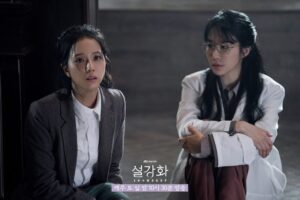
With all the action and head-turning reveals crammed in the finale, you would think, then, that the resolution of this sad trainwreck of a show would at least be explosive. You would also be forgiven for thinking that the drama efficiently used this time to explain the plot holes and tedious decisions away. But sadly, the Snowdrop finale is just as (if not more) infuriating than the show’s entire run; it is one of the most ridiculously rushed endings in recent K-drama history.
For one, Yeong-ro, already incredibly wasted in the show (which is a shame, considering Jisoo’s warm and affecting portrayal of the character), gets absolutely no reconciliation or redemption in the end. She is left with no family, no friends, and no lovers, and we are expected to accept that deal with no follow-through. We don’t get a glimpse of how she copes exactly, nor do we get to see if she tries to win back her friends, make peace with her father, or avenge Soo-ho by enacting the justice he died for. We’re only left with the knowledge that Yeong-ro spends her days playing Soo-ho’s recorded message on repeat, daydreaming about what they could have been in vague contentment. At least in her fantasies, Soo-ho is still alive and living the musical dream he had wished for himself. This is meant to be a poignant and romantic conclusion to Yeong-ro’s arc, but frankly, it sounds more like a bleak villain origin story than anything else.
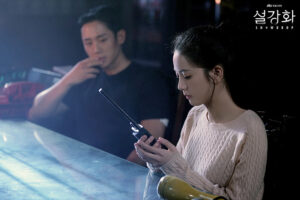
For another, none of the issues the drama brings up are actually resolved or explored in depth. It’s not clear whether the truth about the hostage situation being an election scheme is ever revealed to the public; the fact that the officers in charge are put behind bars doesn’t tell us much about this either, considering they were only jailed for letting the president (not the citizens) down. Equally unclear is whether the iron-willed ANSP agents made good on their promise to reform their corrupt agency. In the epilogue, they’re seen paying their respects to Soo-ho, but not much is said in the way of retribution or systematic change.
In fact, there is no real closure to anything. For all the plot lines the drama brazenly pursues, it doesn’t bother to tie up anything with real purpose or meaning. It enjoys laying its opinions thick, which are smart to be sure but ultimately rendered empty when it doesn’t allow its characters to enact them, to prove them by showing and not just telling.
Still, if you remove the frills surrounding the show, that is, the flimsy attempts to be epic, funny, romantic, and relevant, if you distill it to what it really is—a political thriller that points to the absurdity of government and our remarkable capacity for survival—then Snowdrop can actually be quite special.
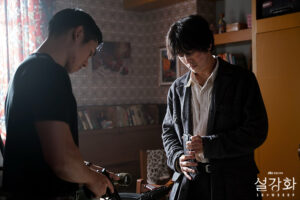
Some of the show’s best moments are when characters engage in insightful debates about their clashing morals. Take the stand-off between the custodian Kim Man-dong (Kim Jong-soo) and former headmistress Song Hye-Joo (Yum Jung-ah), for example, or the one between Soo-hoo and Gang-mu. They attack one another with North Korean party-first ideology and South Korean commerce-first ideology, each one believing they are more right than the other. Of course, both sides sound ridiculous in their defense, the point being that extremity and blind faith could never be the answer. It’s only when Soo-hoo and Gang-mu realize this and renounce their affiliations are they able to really save the hostages and redeem themselves.
Sadly, this part of the drama is buried under so many unnecessary side stories that it hardly gets the notice it deserves.
Snowdrop also marred by genre overlaps which reduce its importance and make for an uncomfortable watch. When a journalist is beaten to a pulp for capturing crucial information, for example, or when the higher-ups steal from the nation’s coffers, playful music can be heard in the background as we watch the actors play the scenes cartoonishly and comedically. In another instance, our hero Han-na attacks the same journalist and crushes his camera; it’s painted as a kick-ass moment that highlights Han-na’s prowess.
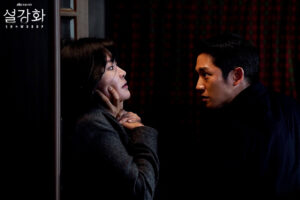
Are we supposed to laugh at these scenes or be in awe of them? Isn’t revulsion the only appropriate response to the suppression of press freedom, which is still a very real issue in many parts of the world? And after receiving so much criticism for glorifying the blood-soaked agency that is the ANSP, shouldn’t the drama know better than to further extol their atrocities?
Snowdrop desperately wants to be broad in its appeal, to be funny and romantic as well as smart, but it only suffers from the jarring and inappropriate tonal shifts. Without a deft and balanced hand, it simply cannot have its cake and eat it too.
Early in the series, Yeong-ro and Soo-hoo bond over the 1979 song “One Way Ticket” by Eruption. It’s meant to foreshadow the ultimate demise of their relationship, but I would go so far as to say it foreshadows the fate of the entire series. In the end, Snowdrop proved to be a one-way ticket to nowhere. We get no accountability, no consequences, and no resolutions, and the characters are cruelly dumped in Nowhereland, with no growth or future to speak of.
(YouTube. Variety. Amnesty International. Korea Joong Ang Daily. Images via JTBC/Netflix)
